

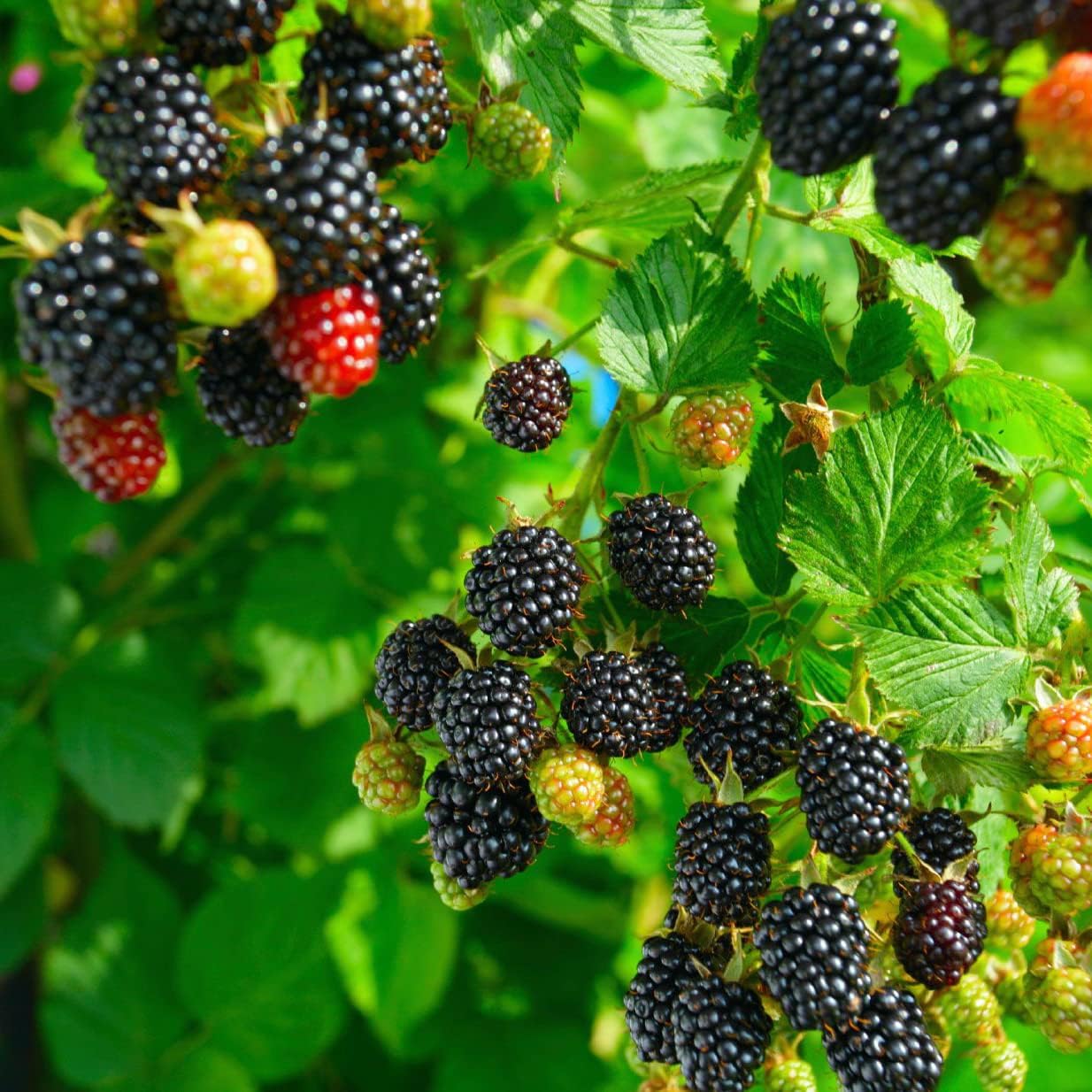
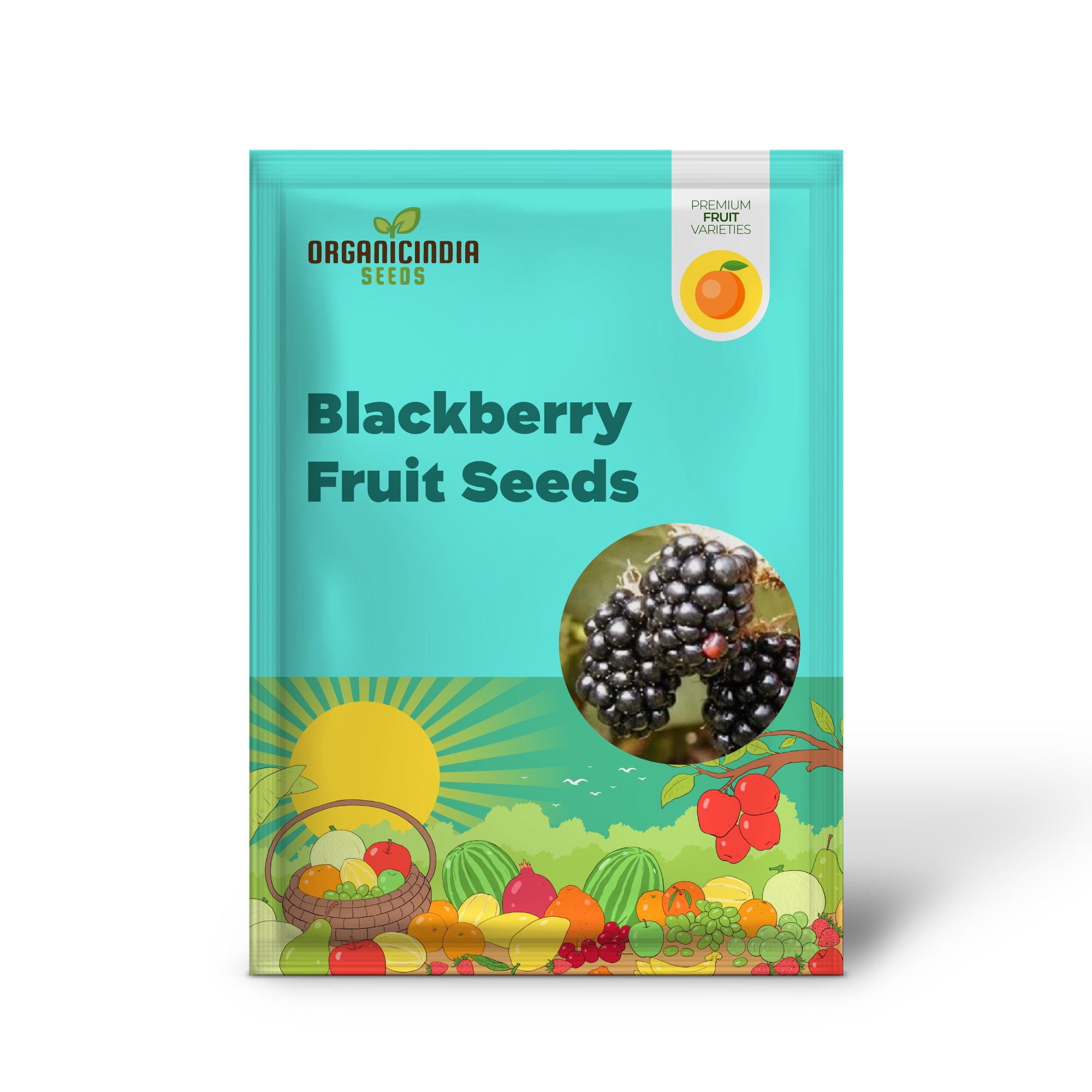
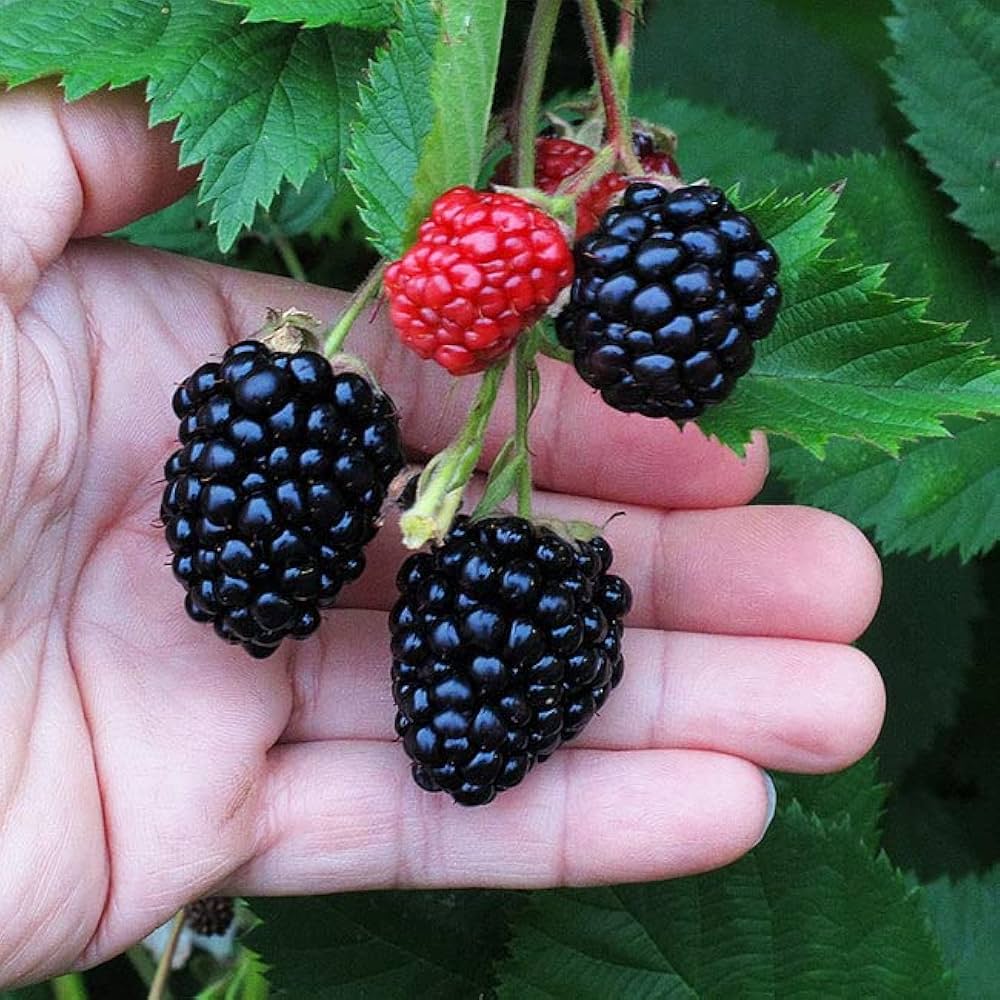
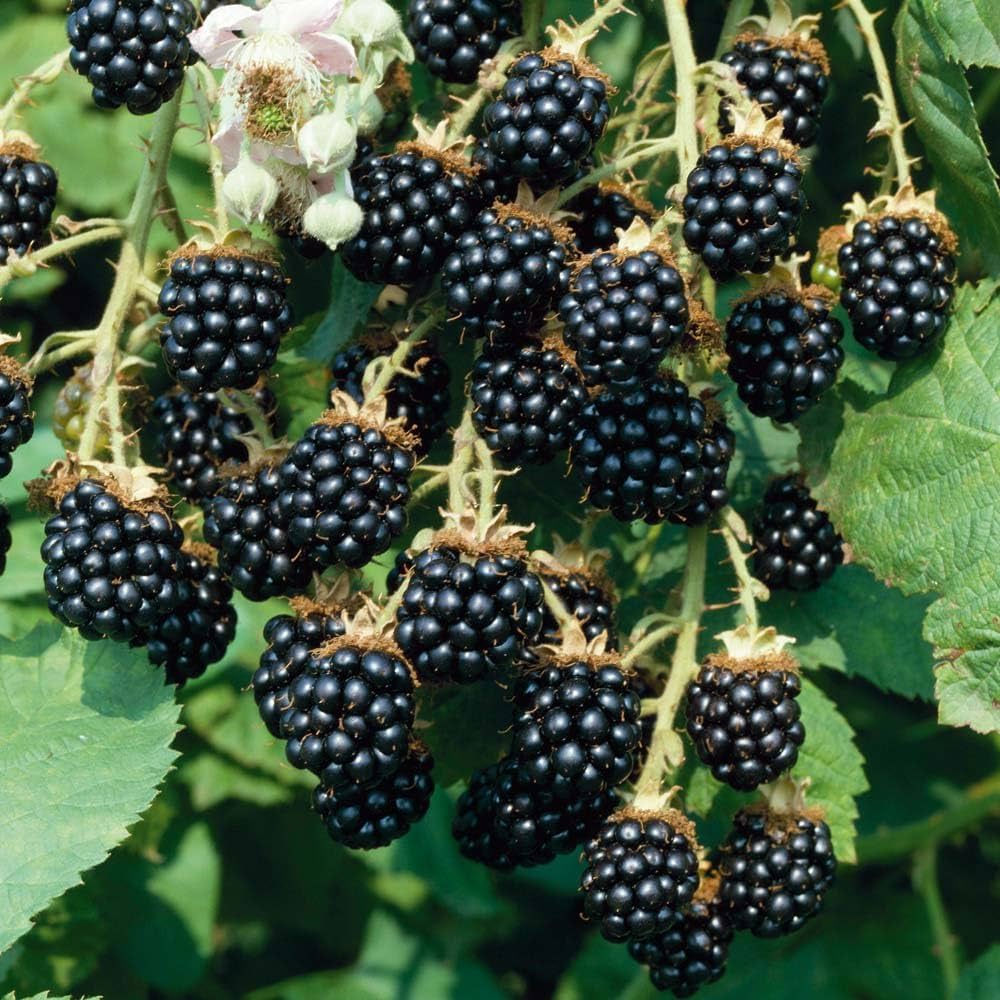
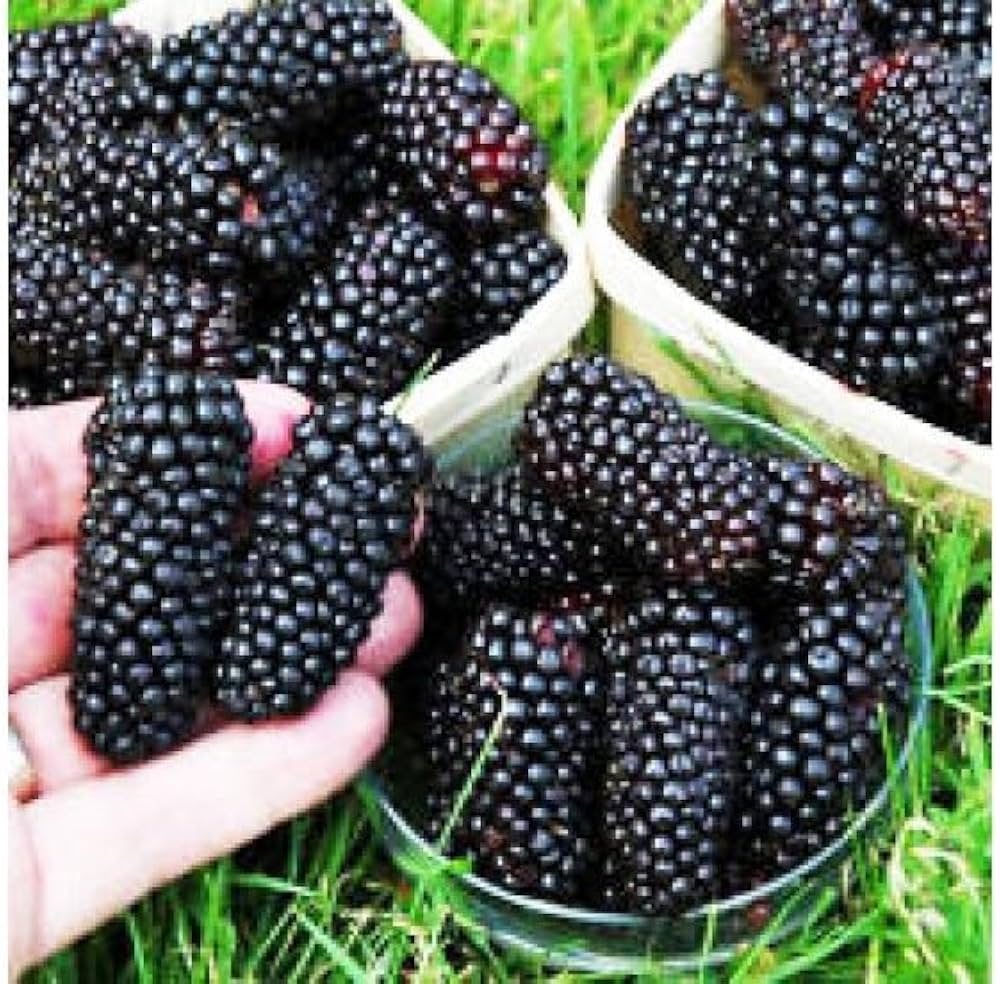
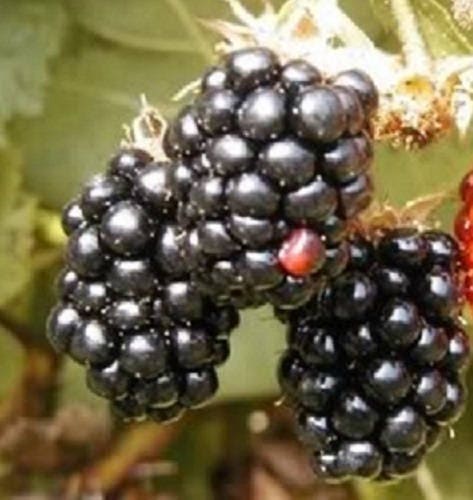
Free Shipping
Safe & Secure Payments
High-Yield Fruiting Shrub: Produces clusters of juicy, sweet-tart blackberries.
Cold-Hardy & Adaptable: Thrives in temperate climates and tolerates light frost.
Non-GMO & Heirloom Seeds: Naturally sourced, free from genetic modification.
Low Maintenance: Easy to grow with minimal care once established.
Nutrient-Rich Fruit: Packed with fiber, vitamins, and antioxidants.
Great for Pollinators: White spring flowers attract bees and butterflies.
Ideal for Home Gardens: Can be trained on trellises or grown as a compact shrub.
Scientific Name: Rubus fruticosus
Common Name (US): Blackberry
Plant Type: Deciduous Fruiting Shrub / Climber
Growth Height: 3–10 feet (1–3 meters)
USDA Hardiness Zones: 5–10
Sun Exposure: Full Sun
Soil Type: Well-drained loamy or sandy soil
Soil pH: 5.5–7.0
Water Requirements: Moderate; consistent moisture during fruiting
Temperature for Germination: 65–75°F (18–24°C)
Germination Time: 30–90 days (requires stratification)
Planting Depth: 1/8 inch (0.3 cm)
Spacing: 2–4 feet apart
Bloom Season: Spring
Fruit Season: Summer to Early Fall
Seed Type: Non-GMO, Heirloom Variety
Pollination: Self-fertile but higher yields with cross-pollination
Lifespan: Perennial (up to 10–15 years)
Uses: Fresh eating, jams, desserts, smoothies, and hedgerows
Seed Stratification: Store seeds in moist peat moss at 35–40°F (2–4°C) for 60–90 days.
Sowing: Sow stratified seeds 1/8 inch deep in seed-starting mix.
Temperature & Light: Maintain 65–75°F and provide indirect light.
Watering: Keep soil evenly moist but avoid standing water.
Transplanting: Move seedlings outdoors after frost danger passes.
Soil Preparation: Mix compost for better drainage and nutrition.
Pruning: Prune canes annually after fruiting to encourage new growth.
Fertilization: Apply organic compost or balanced fertilizer in early spring.
Choose options





